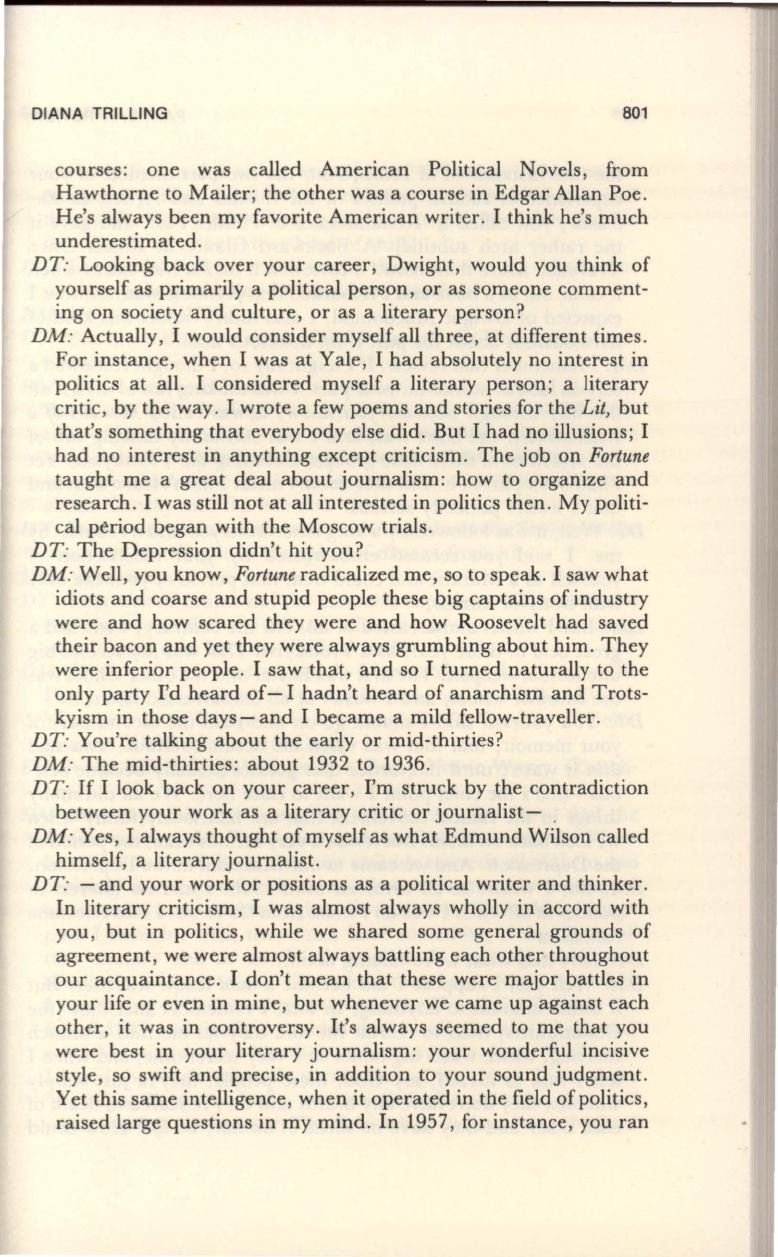
DIANA TRILLING
801
courses: one was called American Political Novels, from
Hawthorne to Mailer; the other was a course in Edgar Allan Poe.
He's always been my favorite American writer. I think he's much
underestimated.
DT:
Looking back over your career, Dwight, would you think of
yourself as primarily a political person, or as someone comment–
ing on society and culture, or as a literary person?
DM:
Actually, I would consider myself all three, at different times.
For instance, when I was at Yale, I had absolutely no interest in
politics at all. I considered myself a literary person; a literary
critic, by the way. I wrote a few poems and stories for the
Lit,
but
that's something that everybody else did. But I had no illusions; I
had no interest in anything except criticism. The job on
Fortune
taught me a great deal about journalism: how to organize and
research . I was still not at all interested in politics then . My politi–
cal period began with the Moscow trials.
DT:
The Depression didn't hit you?
DM:
Well, you know,
Fortune
radicalized me, so to speak. I saw what
idiots and coarse and stupid people these big captains of industry
were and how scared they were and how Roosevelt had saved
their bacon and yet they were always grumbling about him. They
were inferior people. I saw that, and so I turned naturally to the
only party I'd heard of- I hadn't heard of anarchism and Trots–
kyism in those days- and I became a mild fellow-traveller .
DT:
You're talking about the early or mid-thirties?
DM:
The mid-thirties: about 1932 to 1936.
DT:
If
I look back on your career, I'm struck by the contradiction
between your work as a literary critic or journalist- .
DM:
Yes, I always thought of myself as what Edmund Wilson called
himself, a literary journalist.
DT:
-and your work or positions as a political writer and thinker.
In literary criticism, I was almost always wholly in accord with
you, but in politics, while we shared some general grounds of
agreement, we were almost always battling each other throughout
our acquaintance. I don't mean that these were major battles in
your life or even in mine, but whenever we came up against each
other, it was in controversy. It's always seemed to me that you
were best in your literary journalism: your wonderful incisive
style, so swift and precise, in addition to your sound judgment.
Yet this same intelligence, when it operated in the field of politics,
raised large questions in my mind . In 1957, for instance, you ran


